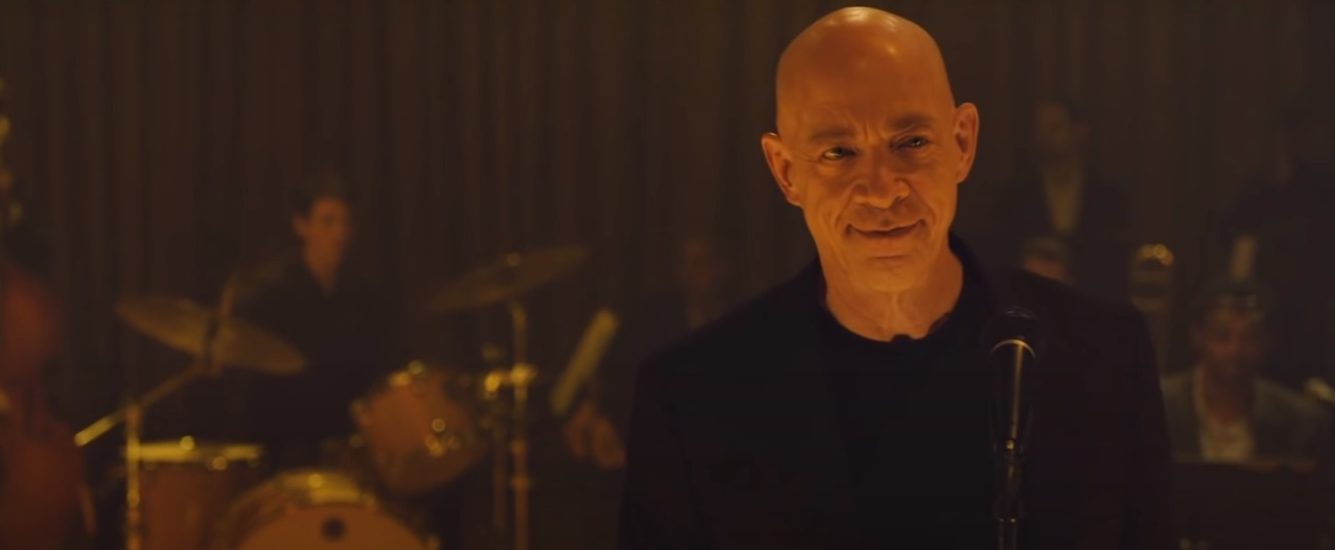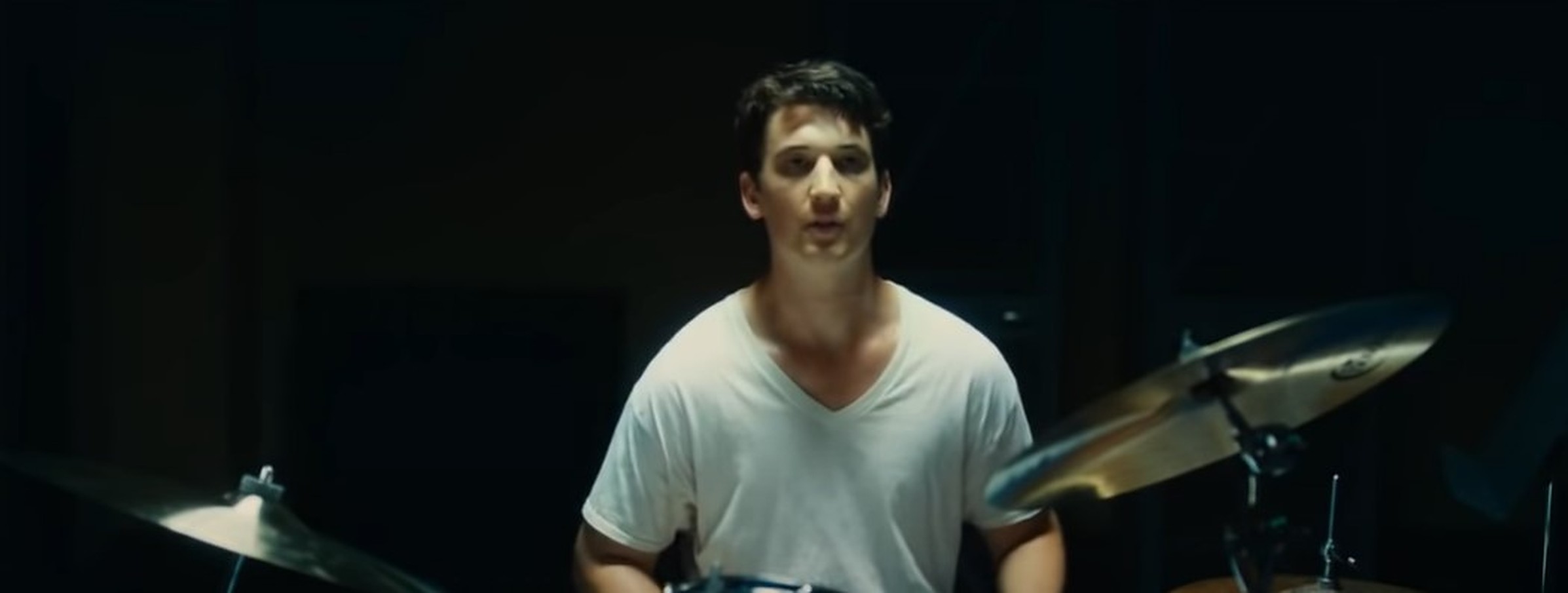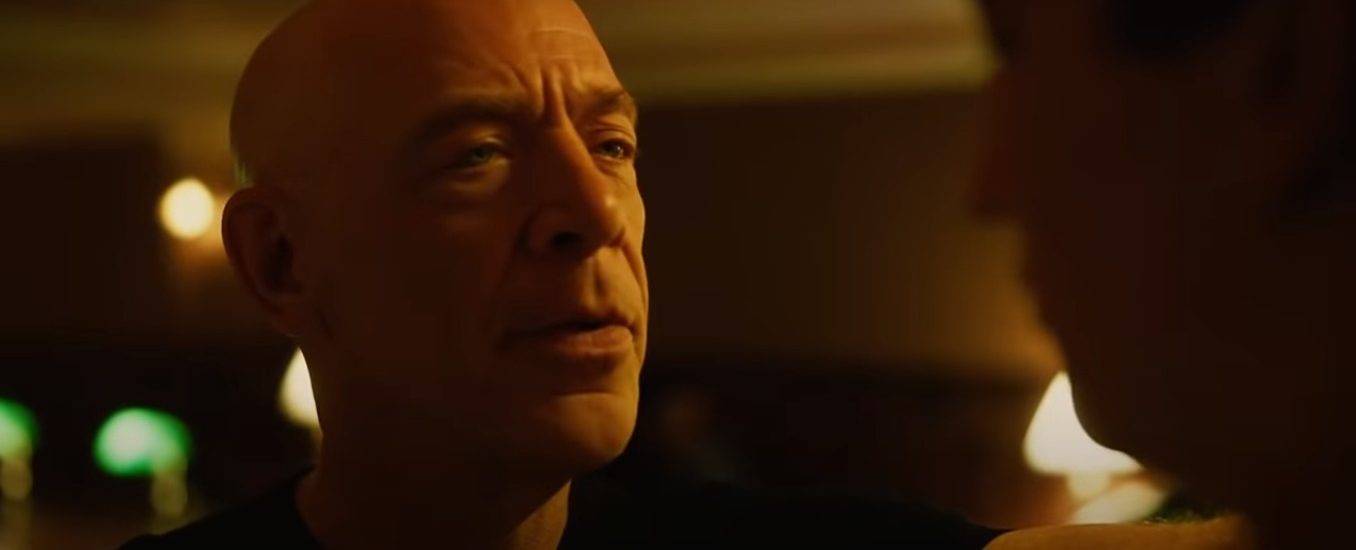‘Whiplash‘ is a 2014 psychological drama that follows an ambitious music student trying to meet his abusive instructor’s expectations. As a junior student at the New York Schaffer Conservatory, Andrew Neiman (Miles Teller) is singlemindedly focused on becoming a legendary drummer. However, in his way stands the domineering Terence Fletcher (J.K. Simmons) — an accomplished jazz instructor known for his harsh training methods. Just how far Terrence can push Andrew becomes the film’s tense central story arc.
Directed by Damien Chazelle, the film explores the lesser-known brutal competitive side of jazz bands. Andrew’s journey and encounter with the belligerent instructor feel quite authentic, and the narrative shows signs of being entrenched in reality. To answer this lingering question, we decided to find out whether ‘Whiplash’ is actually based on a true story or not. Here’s what we found.
Is Whiplash a True Story?
‘Whiplash’ is partially based on a true story. The film, written and directed by Damien Chazelle, draws from his experiences while attending Princeton High School. He was part of a very competitive jazz band in high school and spent a few years completely immersed in playing the drums. Though the film follows a fictional narrative, set in the make-believe Schaffer Conservatory in New York City, the director attempted to imbibe it with the dread he felt while playing in the band.

The director revealed in an interview that he wrote the script while he was going through a “frustrating” experience trying to get his musical, ‘La La Land‘ off the ground. After finishing the script for ‘Whiplash,’ Chazelle used 15 pages of the script to make an 18-minute short film with the same name to raise funds for the feature film. The short film was received favorably, and soon he made the feature-length version of the script. One of the film’s most notable aspects is the antagonist band instructor, Terence Fletcher, who becomes the protagonist’s main obstacle.
The director revealed that Fletcher was inspired by his harsh high school music instructor but also drew from the likes of Buddy Rich and “other famously tyrannical band leaders in jazz history.” Chazelle further described how he remembered being terrified while playing the drums in high school because of the pressure. “That was my overall emotion during those years. Just dread,” he said.” And not being able to eat meals before rehearsals and losing sleep and sweating my ass off. I wanted to pour that into the movie.”
Understandably, there are a few similarities between the director’s experiences and what Andrew goes through in the film. A particular excerpt from Chazelle’s interview reveals just how similar to the film his own life was — “…it’s a testament to how influential and intimidating my conductor was that something that beforehand had been a kind of side hobby for me became, for four years, absolutely my life and an obsession. There was nothing I thought about other than drums and tempo and studying Buddy Rich and Joe Jones. That was my entire life. It was a pretty narrowly focused life.”
Apart from drawing on the director’s experiences, the film’s protagonist gets another layer of authenticity by being essayed by a drummer. Actor Miles Teller has played the drums since his teens, and about forty percent of the soundtracks used in the movie are his own drumming. However, since he had played only rock and never underwent formal music education, he had to undergo intense training to play a convincing jazz musician, and a visual double was also used for a few shots.

Most of the characters that form the rest of the band in the film are musicians and had never been on screen before. In fact, Chazelle made it a point to catch close-ups of the band members in particularly tense scenes involving Simmons’ Terence Fletcher to get their authentic reactions to the latter’s domineering presence.
Finally, the music school seen in the film is fictional but appears to have similarities with The Juilliard School in New York. The film’s namesake track, “Whiplash,” is an actual track composed by Hank Levy and first released in a 1973 jazz album by Don Ellis. The film’s use of complex jazz tracks is part of the director’s larger vision of introducing audiences to the cutthroat and high-pressure world of big jazz bands.
Ultimately, ‘Whiplash’ is a dramatization loosely inspired by Chazelle’s own experiences and some real-life musicians (and a particular music instructor). Through the fictional story, the director attempts to depict, with possibly a hint of exaggeration (Chazelle himself was never slapped by his instructor), the pressures a budding professional musician feels. In a broader sense, the film also explores the complex relationship between ambition and abuse, reflected in the interactions between Andrew and Fletcher.
Read More: Where Was Whiplash Filmed?


You must be logged in to post a comment.